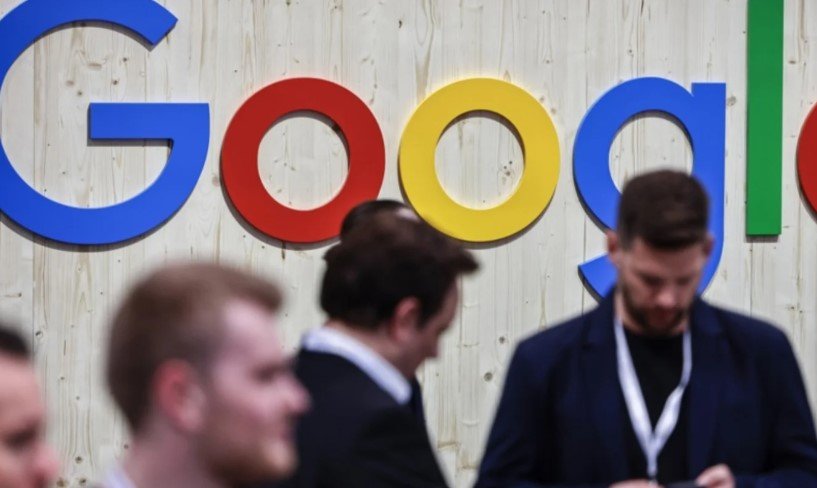In a significant move, the United States Department of Justice (DOJ) filed a proposal on Wednesday calling for Google to sell its Chrome browser as part of a broader plan to break up the company’s illegal monopoly in online search. This proposal, presented to the U.S. District Court for the District of Columbia, includes strict conditions that could alter Google’s position in the tech world for years to come.
DOJ Seeks Fundamental Changes to Google’s Search Business
The DOJ’s filing argues that Google’s dominance in the search engine market, coupled with its ownership of critical distribution channels like Chrome and Android, presents a formidable challenge to market competition. The department insists that unless Google is forced to divest itself of these key assets, the company will continue to exert unfair control over the search market.
This legal action follows a ruling in August by District Court Judge Amit Mehta, who determined that Google was abusing its monopoly power. The ruling specifically highlighted Google’s control over critical internet gateways and its practice of paying third parties to secure its position as the default search engine on various devices, including Apple products.
The DOJ’s proposal also includes a five-year ban preventing Google from re-entering the search market if it is required to sell Chrome. While Judge Mehta is ultimately tasked with determining the final outcome, his decision could have far-reaching implications for one of the most powerful companies in the world. A decision is expected in 2025, marking the next phase of the high-stakes trial.

Proposal to Spin Off Android and Chrome
Among the remedies suggested by the DOJ, the proposal to force Google to spin off both Android and Chrome stands out as one of the most radical. Google’s control over Android, which powers billions of mobile devices, is seen as a major barrier to competition in the search market. The DOJ has hinted that if Google fails to implement sufficient limitations on how Android is used to favor its search engine, the company should be required to divest the operating system entirely.
The filing also addressed Google’s exclusive contracts, such as the one with Apple, which ensures that Google remains the default search engine on all Apple devices. Prosecutors are pushing for an end to these types of agreements, arguing that they are part of the company’s anti-competitive practices. Additionally, Google would be prohibited from acquiring or owning rival technologies related to ad-based search, query-based AI products, or advertising systems after the Chrome sale.
Data Sharing and AI Market Impact
In another significant aspect of the DOJ’s filing, the department proposed that Google be required to license its search data, as well as its ad click data, to competitors. This measure is aimed at leveling the playing field for rival search engines and advertising platforms, ensuring that smaller players in the market can compete on equal terms.
The proposed remedies also address the growing influence of AI. If the court accepts these terms, it could significantly impact Google’s ambitions in the AI market, where the company competes with OpenAI, Microsoft, and Anthropic. The DOJ has made it clear that Google’s dominance in the search engine and advertising space should not give the company an unfair advantage in AI technologies.
Additionally, the DOJ has suggested measures to limit Google’s use of publishers’ data to train its AI models, offering publishers the ability to opt out of such data-sharing arrangements. This provision reflects growing concerns about the ethical use of data and the power that tech giants have over the information ecosystem.
Google’s Market Share and Future Outlook
Chrome, which currently controls approximately 61% of the U.S. browser market according to StatCounter, plays a critical role in Google’s search dominance. The browser is not just a tool for internet navigation—it’s a key gateway that funnels users directly into Google’s vast search ecosystem. By forcing Google to sell Chrome, the DOJ aims to remove one of the most potent tools the company has for maintaining its monopoly.
If the DOJ’s proposal is accepted, Google will face a significant challenge in reconfiguring its business operations. The company’s ability to retain its position as a leader in both search and advertising would be undermined by the sale of Chrome and potentially Android.
The filing confirmed previous reports that the DOJ was considering the spin-off of Chrome, a move that could have serious consequences for the company’s ability to compete with other tech giants, particularly in the emerging field of artificial intelligence.
Google’s Response
At the time of writing, Google has not responded to requests for comment from TechCrunch regarding the DOJ’s filing. The company’s legal team will likely provide more information in the coming weeks, as the case moves closer to the trial phase in 2025.
However, given Google’s long-standing position in the market, the company is expected to vigorously oppose these proposals, arguing that such drastic actions are not necessary to restore competition in the search and advertising industries.
The outcome of this case could redefine the future of the internet, as the DOJ seeks to level the playing field and curb the dominance of one of the most influential corporations in history.
